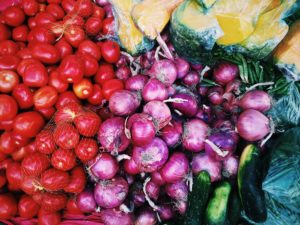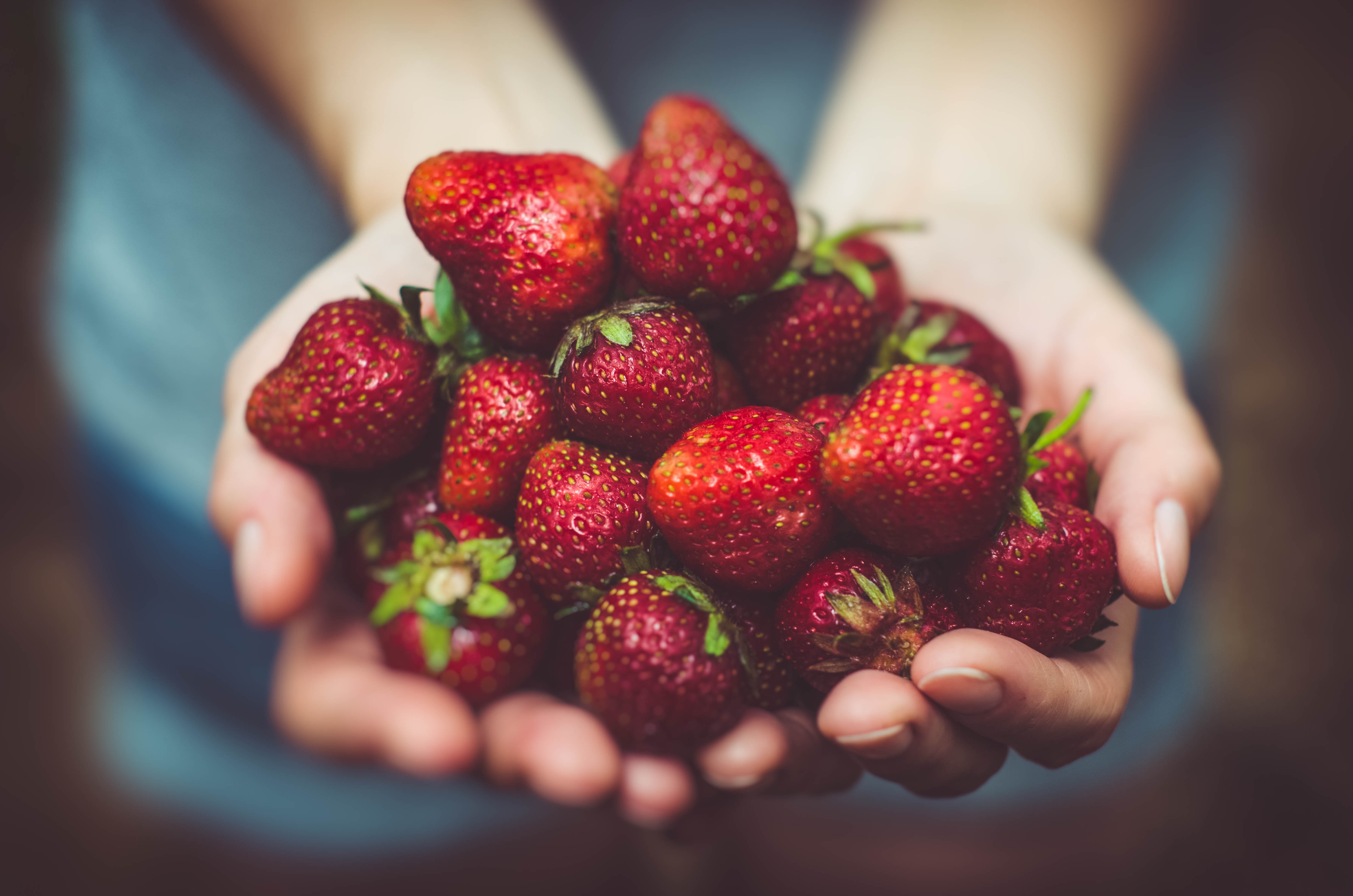Did you know we ALL have cancer cells in our bodies? That’s right. Every single one of us.
That’s really a crazy, scary thought…
It leaves you thinking that there’s no hope, like being in a scary movie with no hope for a happy ending, but that couldn’t be further from the truth.
Truth is the majority of cancers are created mostly by our environment and our lifestyle (what you put in and on your body). That means, my friend, that you have a lot of control over the outcome of your health. Let’s focus on what you put in your body. According to Isaac Eliaz, MD here are a few things to consider:
- Fatty red meat has been associated with increased breast cancer, especially meats cooked at high temperatures.
- A 2008 study of more than 15,000 women found that high-fat food choices were significantly associated with increased cancer risk. Among other negative effects, fat intake increases estrogen levels.
- Sugar intake increases IGF-1 (insulin-like growth factor), which is associated with increased estrogen.
According to studies done by Shushana Castle, breast, colon and ovarian cancers can be slowed or reversed by eating a plant-based diet. Consider the fact that in the U.S. 1 in 8 are likely to develop breast cancer, but in cultures that eat mainly a plant-based diet, indigenous to their culture the number changes to 1 in 82. Eating mainly a plant-based diet is so important but it’s not the only thing.
Something else that can increase the odds in your favor? Eating organic.
You likely are no stranger to the benefits of organic foods over conventionally grown foods — organic foods aren’t allowed to be cultivated with nasty pesticides, synthetic growth hormones, and GMOs. But perhaps the price tags of organic items make you wonder if it’s possible to fill your cart with only organic items. 
There are many benefits of eating more organic food, like lowering your exposure to hormone-disrupting toxins. The costs of healthcare are more astronomical now than ever, so it makes great sense to take better care of yourself through nourishing foods that don’t have harmful agents in them.
Going organic can have a bit of a higher price tag, but it is worth it in the long run. If going all organic isn’t an option, you can still take small steps to get safer food on your table.
Here are a few tips to help you on your next grocery run:
Always give your kids organic
We may be talking about you, but why not start at the beginning. Kids are still in a crucial period of growing, if you have to make sacrifices in your budget for organics, then you could just buy organic for your children to start with. Those pesticides and growth hormones can affect their growing bodies. You can set them up for a greater chance to lead a healthy lifestyle for years to come. Give them the fighting chance to become the 1 that remains cancer-free. You can start by picking up long-lasting produce that won’t go bad quickly, so you aren’t throwing money down the drain.
Even fruits and vegetables
Want to know something really alarming? Even fruits that have peels that you don’t eat can absorb the  pesticides they’re sprayed with. So when you thought it was fine to choose a banana that wasn’t organic, think again. It’s even more critical when it comes to fruits and vegetables where you do eat the skin. Check out the EWG’s yearly Clean 15 / Dirty Dozen list at EWG.org to see what items you should definitely be purchased organic, and which items have the lowest amount of pesticides where you can skip the organic label.
pesticides they’re sprayed with. So when you thought it was fine to choose a banana that wasn’t organic, think again. It’s even more critical when it comes to fruits and vegetables where you do eat the skin. Check out the EWG’s yearly Clean 15 / Dirty Dozen list at EWG.org to see what items you should definitely be purchased organic, and which items have the lowest amount of pesticides where you can skip the organic label.
Avoid GMOs at all costs
GMO’s cause a host of problems and should be avoided. Just a few years ago, GMO’s weren’t as widely understood as they are today. Because of this awakening, it’s quite simple to find GMO-free products, primarily because they’re clearly labeled. So lucky for you, it’s not difficult to make sure you are getting GMO-free items before you head to the check-out aisle!
Switch your coffee
Love coffee? Make the switch to organic. Regular coffee is chemically-treated, and since it penetrates into the beans, you’re brewing up a pesticide-laden beverage for yourself that can take a toll on your health over  time. Since coffee is typically consumed daily by coffee drinkers, it’s worth the extra money to invest in organic coffee.
time. Since coffee is typically consumed daily by coffee drinkers, it’s worth the extra money to invest in organic coffee.
So yes, going organic everywhere is really best for your benefit, but especially important for your kids. You build it and they will come. Wouldn’t you like to know that you’ve created a sustainable healthy lifestyle for your children for years to come? And if money is a factor, consider shopping for produce at your local farmer’s market where you can be sure you’re getting organically-grown produce which has the added benefit of being local, too. You can also join a co-op where everyone pitches in for fresh organic produce from local farms. There are options for your better health organically that don’t have to cost a fortune, so check them out and find what works best for you and your family.
When you eat a plant-based, organic diet you arm your body with powerful nutrients to fight disease and you give your mind the realization that you can eat for the cure.
Until next time. Health & Hugs xoxo






